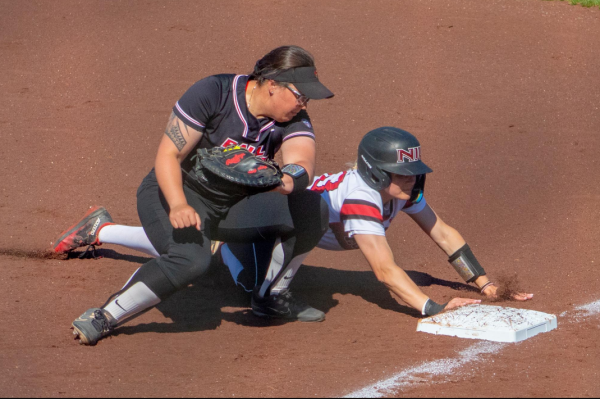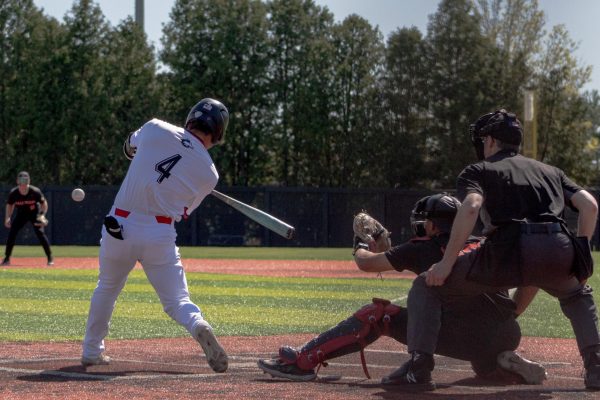NCAA’s Prop 42 a poison, not an antidote
January 17, 1989
The numbers 13 and 666 have always stirred fear among the superstitious and the devil fearing. But now there’s another number that’s going to cause needless terror among a different group of people.
The number is 42, otherwise known as the NCAA’s Proposal 42. And it’s a number and an idea that will burden college coaches and prospective college athletes with unnecessary hardship for years to come.
This proposal—an amendment to Proposition 48—prohibits an athlete from getting a scholarship if he fails to pass any one of the Proposition 48 requirements.
Previously, under Proposition 48 (also known as Bylaw 5-1-j), an athlete had to get at least a 2.0 gpa in specified core high school courses and get at least a 700 on the SAT or a 15 on the ACT in order to compete freshman year. If the athlete passed only one of the requirements, he would still be eligible for a scholarship, even though he would not be allowed to compete in his sport during his freshman year.
Under Proposal 42—now an NCAA bylaw, after its approval at the NCAA convention last week—an athlete who does not pass all the requirements may not receive a scholarship.
This new policy has understandably caused confusion and anger among many college coaches. The most popular question from the coaches seems to be—why change something that works?
The intention of the rule (to give financial aid to better-prepared student-athletes) isn’t bad. But it’s obvious the NCAA officials who voted on this proposal didn’t understand the impact it will have on prospective college athletes.
Think of it. An inner-city high school kid, stuck in a subpar school system, sees the opportunity to get an education by being a college athlete. He works hard to get a 2.5 gpa but narrowly misses the ACT requirement after taking the test three times. As a result, the kid can’t go to college because he doesn’t have enough money to pay his own way.
It appears the NCAA is now abandoning student-athletes because kids are unable to get a couple more points on a lousy test.
Proposal 42 also bites kids who are the victims of an inept school system. Let’s face it, some schools are so bad that one of their students might never pass an ACT, no matter how hard he works.
When that happens, you’re penalizing a kid for being poor or living in the wrong school district—and that’s wrong.
I’ve never been a fan of that great Olympic Coach, John Thompson, but I have to give him credit for protesting the proposal. Even though I think his leaving a game after the opening tip sets a poor example for his players, I admire him for protesting an injustice. His actions show the public that there are more important things than athletics—like the education and future of the athlete.
What makes the proposal so hard to bare is the “yeah-that-sounds-like-a-good-rule-I-think-I’ll-vote-for-it” fashion in which it was adopted. Afterall, the proposal passed by a narrow 163-154 vote, and this occurred one day after the same people had voted 159-151 against the rule.
I wonder what mysterious event occurred that night to make the voters change their minds. Maybe the devil talked to them in their sleep and said something like, “Come on, vote for the thing. Let’s make it a little harder for poor kids to get an education.”
Another issue this rule brings about is cheating. If athletes know they have to pass a test to get an education, who can blame them for trying to bend the rules? And doesn’t a good athlete who can’t pay his own way through school become a perfect target for illegal booster money. “Oh, Hart Lee, here’s a Porsche to help you get to class.”
These are all concerns that should have been examined more thoroughly before the NCAA passed the proposal.
But then again, the NCAA’s new motto seems to be—if it ain’t broke, break it.













